The Walrus Migration
It’s time to say goodbye to the walrus. The Arctic Sea ice is melting at a phenomenal rate, and the walrus has no place to go. Like the Polar Bear, walruses depend on the Arctic Ice as a transportation bridge along the Continental Shelf for summertime marine life hunting. For the last few years, summer has met the two top of the food chain giant species piggy backing on ice flows between hunting grounds, with mainly open water. While the Polar Bear, with a few mishaps in open seas without a bridge to land on, has begun to adapt, moving inland for prey, the walrus isn’t quite so fortunate. The main diet of the walrus is clams, snails and sea worms scooped from the shallow ocean bottom near the Continental Shelf. Without the ice floes to carry them from point to point , they must dive deeper and search longer to satisfy their diets. It also means that thousands of walrus have abandoned their summer residence on the once frozen Chukchi Sea and are crowding the Coast of Alaska, looking for a more suitable home.
In Point Lay, a small village located at the tip of the Chukchi Sea, the residents have reported an amazing phenomenon. As many as 20,000 walruses had crowded their beach for the fourth straight year, apparently choosing it as their new summer home. The change in routine has biologists a little worried. Walruses are notoriously shy. Sudden noises can panic them easily, causing a stampede. When you are talking about thousands of stampeding walruses, you are talking about forty million pounds of weight rushing to enter the ocean.
Last year near Icy Cape, a trampling event led to the deaths of more than 100 of the animals, most of whom were juveniles crushed as the group headed for water en masse, likely after getting spooked. By what remains unknown. Ship captains claim they have seen walrus stampede at the sound of a tug boat horn, loud shouting, machinery squeals and other human created noises.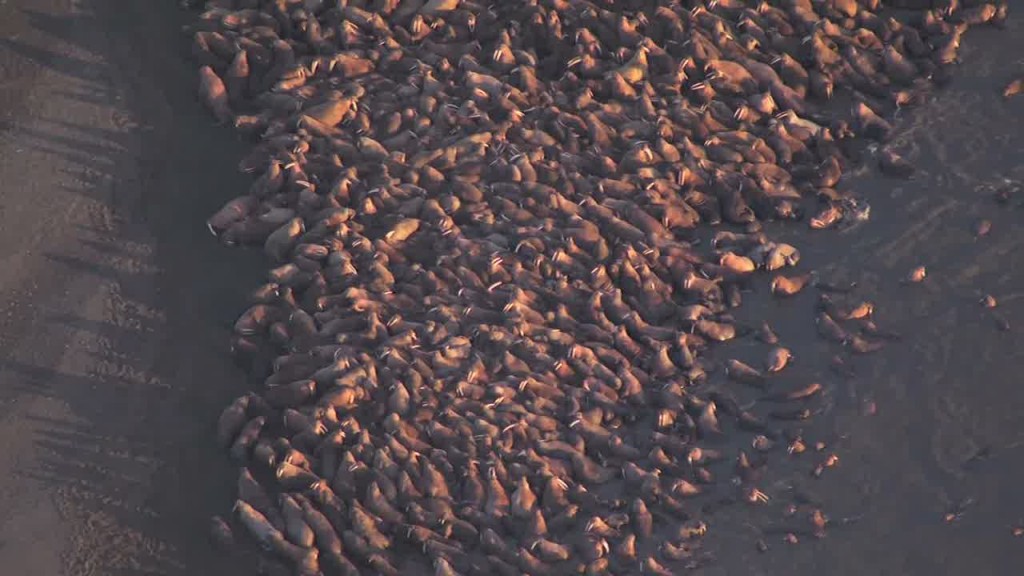
Steps are being taken to try to make sure that doesn’t happen with the group hauled out in Point Lay. Flight restrictions have been imposed, and the village is refusing to indulge out of town tourists who are shopping around for boat rides to get a closer look. Hunters have been asked to stay away from the main group, and people seem to be respecting that request, according to Leo Ferreira, the village’s mayor.
Endangered Coastlines
Melting sea ice isn’t just problematic for walruses and Polar Bears. The cold, fresh water settling along the ocean floor is also changing the ocean currents and raising sea levels. This singular event results in eroding coastlines, mass flooding and increased hurricanes, cyclones and tornadoes on a global level. Of itself, a changing climate might not be so catastrophic, but along with these natural events, come the man made calamities of industrial accidents, resulting in grand scale pollution and toxic waste contamination.
Drought and abnormally high temperatures have plagued much of the world this summer, accompanied by wild fires, dust storms and floods. While Japan continues its attempts in mopping up the radioactive leakage from its destroyed nuclear reactors, the United States recounts its woes with numerous oil spills and the damaged environment left as a result. The North American Eastern Seaboard was met by two nearly unprecedented events; a hurricane that drove straight up the coast to Vermont, flooding the New Jersey shoreline, and an earthquake that wouldn’t have caused more than a raised eyebrow along the Ring of Fire, but that shook New York residents to the core. These natural and man made events can be expected to continue escalating as the warming process in the Arctic regions continues.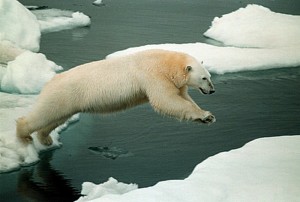
The Open Corridor and its Meaning to World Governments
Considering biologists for the US Government are deeply concerned for the effects on melting sea ice on the Far North’s fragile ego system, and consequently the world, you would think they would be among the first to caution restraints on the development of the Arctic Shelf’s natural resources. Although Ferreira theorizes that ship traffic is diverting the walruses to shore in unusual increasing numbers, government scientists suspect it has more to do with an increasing lack of sea ice. Walruses have been known to haul out onto land in large numbers in Russia, but never on the Alaska side of their migratory corridor in the tens of thousands, as is being witnessed this year.
A quick study of the Chukchi Sea however, tells us this isn’t so. While acknowledging that the area is home to Polar Bears, whales, walrus, seal, and millions of sea birds and water fowl, the main concern is not in saving precious habitats that feed the world’s marine life, but on the development of oil once the Chukchi is ice free.
An article in Alaska Audubon states: “Despite its spectacular wildlife, the Chukchi Sea is under intense pressure from prospective oil and gas development, especially as the sea ice melts. In February of 2008, in its first lease sale in nearly 20 years, nearly three million acres in the Chukchi Sea were sold for over $2.6 billion. The leased areas are roughly 50-60 miles from the northwest coast of Alaska. Audubon, in partnership with several Alaska Native and conservation groups, filed a lawsuit to block implementation of that lease sale and future exploratory activities. The suit charged that the Minerals Management Service (MMS) lacked the necessary data to assess resource values and impacts and had not properly followed the mandates of the National Environmental Policy Act (NEPA), the Outer Continental Shelf Leasing Act (OCSLA), or the ESA. Plaintiffs have submitted briefs, and the new Administration has asked for additional time to assess the suit.”
The United States isn’t the only country rubbing melting ice and oil development together and coming up with dollar signs. Four other Nations have staked property claims within the inside passage of the Arctic Circle; Canada, Russia, Norway and Denmark. The battle heats up as these countries convene within an International forum designed to decide ways to develop the Arctic, and more importantly, who gets what share of the booty.
In August 2007, a team of Russian explorers organized a spectacular trip to the very depths of the Arctic Ocean. The mission, led by explorer and Duma member Artur Chilingarov, planted the country’s tricolor on the seabed 4,200m (14,000ft) below the North Pole to bolster Moscow’s claims to the Arctic. Canada was infuriated with the mission.
“This isn’t the 15th Century,” Canadian Foreign Minister Peter MacKay told the CTV channel. “You can’t go around the world and just plant flags and say ‘We’re claiming this territory.'”
Canada decided Russia’s claims were serious enough to do something about it. They began conducting military exercises in the arctic region, drawing in their navy, air force and coast guard to test, as they put it, their combat readiness in the frigid north.
Canada is formally involved in territorial disputes with two other Arctic claimants: The United States over the Beaufort Sea lying between Canada’s Northwest Territories and Yukon Territory and the American state of Alaska, and Denmark over the Hans Island between Canada’s Ellesmere Island and Denmark’s Greenland possession on the other end of the Arctic.
Four of the five nations with Arctic claims, all except Russia, are founders of the North Atlantic Treaty Organization whose charter commits member states to mutual military assistance.
Although Canada’s territorial disputes in the Arctic are with fellow NATO members the U.S. and Denmark, the three nations have recently coordinated their strategies and in 2010, for the first time, Operation Nanook collectively participated in military exercises in the Arctic region. The four NATO nations, then collectively bared their teeth and rattled their sabers at Russia.
Russia is not extremely impressed. As the race heats up to lay claims on the Arctic Shelf, Russia has told the Western military bloc that its presence is not required. With Prime Minister Vladimir Putin expected to take part in an international forum devoted to the subject of Arctic transport routes, Russian special envoy Anton Vasilyev says that there are no problems in the Arctic to which a military presence would be a solution. “Problems do exist in the Arctic, but we have no questions there which would require military force. We do not need the presence of military-political blocs in the Arctic,” the diplomat said in an interview with Interfax.
The Arctic and the World’s Health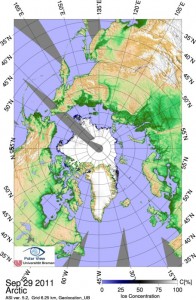
Economically, the countries with claims to the Arctic Shelf stand to gain a lot of money. The shelf is expected to contain thirty percent of the world’s non-renewable natural resources. If Russia wins its claim, “Russia will be able to increase its continental shelf by 1.2 million square kilometers [460,000 square miles] with potential hydrocarbon reserves of not less than 9,000 to 10,000 billion tonnes of conventional fuel beyond the 200-mile [322 kilometer] economic zone in the Arctic Ocean,” Viktor Posyolov, an official with Russia’s Agency for Management of Mineral Resources, told Itar-Tass.
Environmentally, they have a lot to lose. The Arctic Rim isn’t just a sparsely populated area, stricken with more months of winter than summer, filled with strange and wonderful wildlife that absolutely would be missed if they died out. The Arctic Rim is like a health monitor. Many air-borne bacteria, viruses, poisonous and plant life damaging insects are able to survive one summer in the Arctic region, but weaken and die out within two years because of the long, vicious, sterilizing winters. Its cold adaptive plant, marine and wild life stay vigorous because of this. Its migrating species add to the food chain. All it would take is one major oil spill in the Chukchi Sea and the world’s largest healthy food basket would be contaminated.
According to Audubon: “The chances of an oil spill in these fragile waters are very real, and the technology for oil cleanup in remote, ice-choked waters does not exist. The MMS admits that there is currently no way to adequately respond to oil spills in solid and broken ice conditions and that oil development, particularly a large spill, could cause long-lasting and devastating sociocultural impacts, including contamination of food and water, erosion of community integrity and identity, and substantial impairment to subsistence due to animal loss or changes in migration routes and behavior. Mitigation measures to prevent adverse impacts on the Arctic Ocean environment and wildlife have not been adequately or realistically described.”
What happens in the Arctic affects the globe. We can’t turn back the clock on climate change and alter its course. We can accept that it’s happening and prepare. Politically, we have been let down by everyone. Instead of recognizing the melting sea ice for what it is, a cataclysmic event that will place coastal cities under duress, the concentration by all four NATO countries, along with Russia, is on an open passage for oil development, and an excuse to declare open war for the right to exploit it.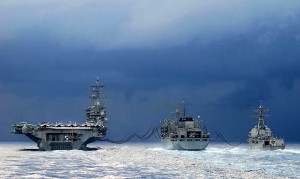
More oil development should not come as good news to anyone. It postpones the transition to renewable resources which should have begun twenty years ago. It allows the public to be lazy and content with their current technology until the next disaster strikes. As shown by the Polar Bear and the walrus, the Arctic can adapt to the climate changes, provided it is not disrupted by the clanging machinery of development, the noxious tides of pollution or the contamination of war.
It can adapt, which should give hope to a world on the brink of Universal disaster. Climate change is here to stay, but there is no need to continue polluting our natural resources. Instead of preparations for war, we need to make preparations for survival. Instead of preparations for further oil development, we need to clean up our waterways, develop clean energy and increase our ability to grow healthy foods. We have the manpower. We have the technology. What we don’t have is a leader who will show us the way.
http://www.adn.com/2011/09/14/2068270/alaska-walruses-changing-their.html
http://www.alaskadispatch.com/article/massive-walrus-haulout-observed-near-point-lay-alaska
http://ak.audubon.org/issues-action/chukchi-sea
http://rt.com/usa/news/russia-arctic-forum-resources/
http://rt.com/politics/russia-arctic-nato-oil-putin-947/

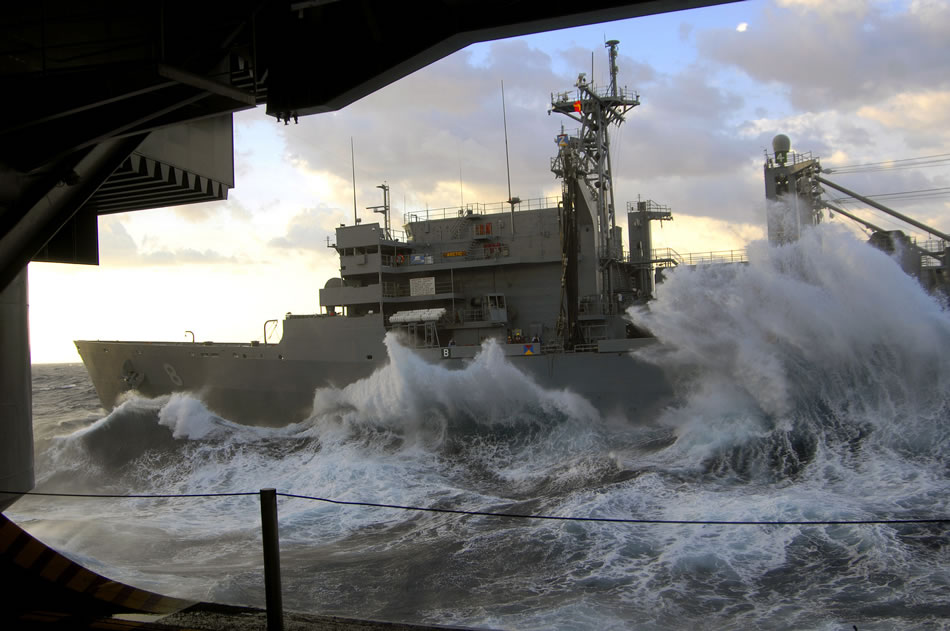
[…] The Northwest Passage to Riches and War Karla Fetrow- The United States isn't the only country rubbing melting ice and oil development together and coming up with dollar signs. Canada, Russia, Norway wand Denmark have staked property claims with the inside passage of the Arctic Circle. Source: subversify.com […]
Great job of reporting, Bev–er, Karla. This really breaks my heart, as the walrus is such a beautiful creature. The politics of what you described are eerily reminiscent of your Icelandic Accord tale. I hope something can be done, but what hope have we. Excellent coverage (and covered in Google News) of an important issue.
Mitch, you’re making me blush. My original thought when i first began crafting the story was, “what would happen fifty years from now if politics continued along their usual course?” Why, it would simply ignore climate change, allow the inevitable to occur without preparations, then attempt to re-build without finding fault in their own capitalist tendencies. The next question i asked myself was, “what countries would have the most resources if a cataclysmic event was to occur”? With the largest amount of the world’s remaining fresh water reserves and the least amount of pollution, it would be the Arctic Rim.
The Arctic Rim can survive global warming. While we will probably lose a great deal of our marine life, given a chance, at least enough of it will survive to propagate. Other species, attracted to the warmer climate, will migrate. Even the walrus can survive provided it learns to adapt to mainland coastlines. The marine life will not survive if it is exposed to ocean contamination. Contaminate the Arctic Ocean and you’ve contaminated the world.
I hope, for once, the world leaders will concentrate on the true significance of melting sea ice and its impact on the world’s environment, instead of rattling guns over resources, but i doubt it. I believe the policy will be “we must have that oil at all costs, environment be damned”, without thinking for a moment, if we make war in the Arctic or suffer a tragic oil spill in the ocean’s depths, there won’t be any clients to serve.
@ Karlsie,
“I believe the policy will be “we must have that oil at all costs, environment be damned”, without thinking for a moment, if we make war in the Arctic or suffer a tragic oil spill in the ocean’s depths, there won’t be any clients to serve.”
But this is the kind of mentality we will see more and more of as the world moves ever closer to peak oil – oil is the lifeblood of the modern state entity and to lose it would be a crippling blow to the state’s ability to project force (which is what all this is *really* about – the oil is intended to maintain an enormous military machine).
Decisions like these are too important to be left in the hands of incorporeal powers – they will always choose their own interests without so much as giving a second thought to the effects on life around them: the state is a psychopath and has to die before it kills us all in the name of “energy security.”
[…] subversify.comThe Pacific walrus’ migration from the Bering Sea to the Chukchi Sea is motivated by their […]
[…] Photo credit […]
I’m amazed, I must say. Seldom do I encounter a blog that’s equally educative and entertaining, and without a doubt, you have
hit the nail on the head. The problem is something
which not enough men and women are speaking intelligently
about. I am very happy I found this during my hunt for something regarding this.